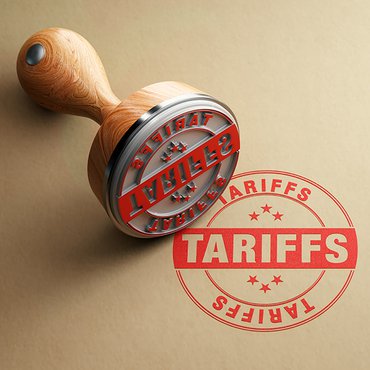Last week, the U.S. along with the U.K. and the EU, agreed to pause tariffs related to the WTO large civil aircraft disputes, for four months. This is the latest in a years-long trade battle over subsidies given to Boeing in the U.S. and Airbus in Europe.
Previously, tariffs from 10 to 25 percent were applied to cheeses, wines, meats, oils, chocolate, jams, pasta, coffee, fish, and spirits imported from overseas. The annual value of goods from the EU subject to tariffs was $7.5 billion, while the EU’s tariffs on U.S. goods totaled $4 billion.
According to joint statements released last week, this suspension aims to ease the burden on industries in both the U.S. and Europe, and allow for time to resolve these long-running disputes.
Specialty food retailer Matt Caputo, president of Caputo’s Market & Deli, is strongly in favor of this pause, and hopes the tariffs will be removed permanently.
“We are in the business of keeping food traditions alive," he said. "There are no U.S. made replacements for some of these iconic European products. Certainly not to make the recipes my grandparents handed down to me. Tariffs on traditional handmade foods are intrinsically harmful to preserving cultural diversity.”
Caputo added that consumers have been footing for the bill for these surcharges.
“Because we operate on very slim margins, there is no way we could have absorbed the costs from the tariffs,” he said. “As soon as we experienced an increase in costs due to the tariffs we simply raised our prices. Tariffs like these are paid by the American consumer, not businesses.”
Thomas Gellert, president of importer Atalanta Corp., agrees, adding that the taxes have put more pressure on businesses during an already difficult time.
“We are thrilled that the U.S. and E.U. decided to suspend tariffs related to the Airbus-Boeing dispute,” he said. “There are no winners in trade wars and these incremental taxes created an additional burden on the food industry that was already suffering due to COVID-19.”
Gellert continued, “We are optimistic, that now, as we see some hope for the foodservice market, restaurants can provide their guests the products they demand without this additional tax.”
In August 2020, the United States Trade Representative took shortbread and other specialty items from the U.K. and Greece, off the list of tariffed items. This removal helped save up to 250 jobs at Walkers Shortbread’s Scotland factories, according to the company.
In response to the latest suspension, Mark Kleinman, president and CEO of Walkers Shortbread said, “Walkers is very pleased by the gesture of goodwill from Washington on the suspension of the section 301 tariffs on British imports and on EU imports. This creates a bit of breathing room as broad-scale trade deals are hammered out.”
Kleinman told SFA News Daily that he and Alastair Walker, head of sales at Walkers Shortbread, met with key members of the House Ways & Means subcommittee on trade in February, as part of the British Embassy delegation to discuss tariff impacts on both sides of the Atlantic.
“It’s gratifying that Walkers may have been of a bit of assistance,” said Kleinman.
Related: EU, US Agree to Pause Tariffs; US, UK Pause Aircraft-Related Tariffs.

